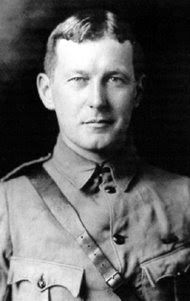Please note that the following draft petition (which has been changed here a number of times, and will continue to change until finalized) is a petition to resume usage of the Royal designation only, and is not intended to disrupt in any way the corporate unity of the Canadian Forces. Please also note that no signatures will be sought until the draft petition has been finalized and pre-certified.PETITION TO THE HOUSE OF COMMONS IN PARLIAMENT ASSEMBLED We, the undersigned citizens and residents of Canada, and loyal subjects of Her Majesty the Queen of Canada, draw the attention of the House to the following:
WHEREAS the
Naval Service Act received Royal Assent on May 4, 1910, and the Canadian navy will commemorate and celebrate its centennial in 2010;
AND WHEREAS the Royal Canadian Navy (RCN) was the navy of Canada until 1968 when the three Canadian armed services were unified to form the Canadian Forces, and the modern Canadian navy has been known as Canadian Forces Maritime Command since unification, but still refers to itself unofficially as the "navy" and maintains many RCN traditions;
AND WHEREAS Command-in-Chief of the Canadian Forces is vested in the Canadian Monarch and ships of the Canadian Forces continue to be called "Her/His Majesty's Canadian Ship";
AND WHEREAS it is currently improper to use the expression "Royal Canadian Navy" and its abbreviation "RCN" in references to the Canadian navy after February 1, 1968;
AND WHEREAS the Royal designation of the Canadian Navy was executed by a Royal Proclamation which has never been revoked, and that the Canadian Government and the Canadian Forces are required to resume usage of the expression “Royal Canadian Navy”, if the expression “Canadian Navy” is used in any official capacity;
AND WHEREAS the above also pertains to the "Royal Canadian Air Force" and its abbreviation "RCAF" in references to the Canadian air force after unification, which has been known as Canadian Forces Air Command since February 1, 1968, but still refers to itself unofficially as the "air force" and maintains many RCAF traditions;
AND WHEREAS notwithstanding the
National Defence Act, which states that "The Canadian Forces are the armed forces of Her Majesty raised by Canada and consist of one Service called the Canadian Armed Forces", separate service uniforms were reintroduced in 1986, separate service chiefs were reinstated and returned to National Defence Headquarters in 1997, separate service websites were officially established and references to the separate services are now commonplace throughout the increasingly tri-service Canadian Forces, all of which have been accommodated without in any way compromising the unified command structure, integrated nature or corporate unity of the Canadian Forces;
AND WHEREAS resuming usage of the Royal designation as it pertains to the "Canadian Navy" and "Canadian Air Force" could be facilitated without in any way undermining the unity of the Canadian Forces acting as a single organization under a unified command structure, and without in any way compromising the integration of military operations, logistics support, personnel and administration of the separate services acting together under the current functional command system, which was the intent of
Bill C-243, The Canadian Forces Reorganization Act, which we the petitioners strongly support;
AND WHEREAS resuming usage of such Royal designations could be facilitated without in any way replacing Canadian Forces Maritime Command and Canadian Forces Air Command, whose Chiefs of Staff would continue to exercise nominal command over the navy and air force respectively;
AND WHEREAS resuming usage of such Royal designations could be efficiently accomplished and executed without material cost to Canadian taxpayers;
AND WHEREAS resuming usage of such Royal designations would restore the traditional esprit de corps of the navy and air force, just as continued usage of the Royal designation of longstanding regular force and reserve regiments has preserved the traditional esprit de corps of the army, and just as continued usage of the Royal designation of the longstanding Royal Canadian Mounted Police has preserved the traditional esprit de corps of Canada's federal constabulary force;
NOW THEREFORE, your petitioners call upon Parliament to take whatever action is necessary to officially resume, restore and reinstate usage of such Royal designations in time for the 2010 centennial celebrations of the Canadian navy, such that the Canadian navy is reincorporated as the Royal Canadian Navy and its abbreviated expression RCN, and the Canadian air force is reincorporated as the Royal Canadian Air Force and its abbreviated expression RCAF, and such reincorporation is made retroactive to February 1, 1968.
Cross-posted to The MonarchistProgress Updates:
- April 25: Interesting - even heated - debate over at the
Navy, Army, Air Force Forum, where the "Yeas" have it by a two-thirds majority.
- April 26: The
Monarchist League of Canada members are supportive
- April 27: Canvassed
Laurie Hawn, M.P. to sponsor draft petition
- April 28: Sent draft petition to Captain(N) Pickingford, Project Manager, Canadian Navy Centennial Project, Peter Dawe, Executive Director of the
RMC Club, Blaine Barker of the Royal Canadian Naval Association and Bob Nixon of the Naval Officer's Association of Canada
-April 29: Sent draft petition to the Dominion Institute to seek their sponsorship
















